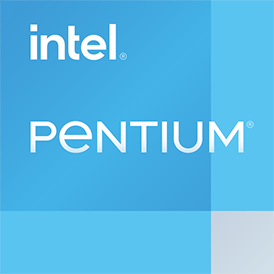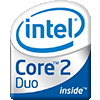
Intel Pentium J3710 Benchmark, Test and specs
Last updated:
The Intel Pentium J3710 has 4 cores with 4 threads and is based on the 7. gen of the Intel Pentium series. The processor uses a mainboard with the BGA 1170 socket and was released in Q1/2016. The Intel Pentium J3710 scores 271 points in the Geekbench 5 single-core benchmark. In the Geekbench 5 multi-core benchmark, the result is 947 points.

| Name: | Intel Pentium J3710 |
|---|---|
| Family: | Intel Pentium (150) |
| CPU group: | Intel Pentium J3000/N3700 (3) |
| Architecture: | Braswell |
| Segment: | Desktop / Server |
| Generation: | 7 |
| Predecessor: | -- |
| Successor: | -- |
CPU Cores and Base Frequency
The Intel Pentium J3710 has 4 CPU cores and can calculate 4 threads in parallel. The clock frequency of the Intel Pentium J3710 is 1.60 GHz (2.64 GHz). The number of CPU cores greatly affects the speed of the processor and is an important performance indicator.
| CPU Cores / Threads: | 4 / 4 |
|---|---|
| Core architecture: | normal |
| Cores: | 4x |
| Hyperthreading / SMT: | No |
|---|---|
| Overclocking: | No |
| Frequency: | 1.60 GHz |
| Turbo Frequency (1 Core): | 2.64 GHz |
| Turbo Frequency (4 Cores): | 2.64 GHz |
Internal Graphics
The Intel Pentium J3710 has integrated graphics, called iGPU for short. Specifically, the Intel Pentium J3710 uses the Intel HD Graphics 405 (18EU), which has 144 texture shaders and 18 execution units. The iGPU uses the system's main memory as graphics memory and sits on the processor's die.
| GPU name: | Intel HD Graphics 405 (18EU) |
|---|---|
| GPU frequency: | 0.40 GHz |
| GPU (Turbo): | 0.74 GHz |
| Compute units: | 18 |
| Shader: | 144 |
| Hardware Raytracing: | No |
| Release date: | Q2/2015 |
| Max. displays: | 3 |
|---|---|
| Generation: | 8 |
| Direct X: | 12 |
| Technology: | 14 nm |
| Max. GPU Memory: | 8 GB |
| Frame Generation: | No |
Hardware codec support
A photo or video codec that is accelerated in hardware can greatly accelerate the working speed of a processor and extend the battery life of notebooks or smartphones when playing videos.
| h265 / HEVC (8 bit): | No |
|---|---|
| h265 / HEVC (10 bit): | No |
| h264: | Decode / Encode |
| VP8: | Decode |
| VP9: | No |
| AV1: | No |
|---|---|
| AVC: | Decode / Encode |
| VC-1: | Decode |
| JPEG: | Decode |
Memory & PCIeThe processor can use up to 8 GB memory in 2 (Dual Channel) memory channels. The maximum memory bandwidth is 25.6 GB/s. The memory type as well as the amount of memory can greatly affect the speed of the system. |
|
| Memory type: | Memory bandwidth: |
|---|---|
| DDR3-1600 | 25.6 GB/s |
| Max. Memory: | 8 GB |
| Memory channels: | 2 (Dual Channel) |
| ECC: | No |
| PCIe: | 2.0 x 4 |
| PCIe Bandwidth: | 2.0 GB/s |
Thermal ManagementThe thermal design power (TDP for short) of the processor is 6.5 W. The TDP specifies the necessary cooling solution that is required to cool the processor sufficiently. The TDP usually gives a rough idea of the actual power consumption of the CPU. |
|
|---|---|
| TDP (PL1 / PBP): | 6.5 W |
| TDP (PL2): | -- |
| TDP up: | -- |
| TDP down: | -- |
| Tjunction max.: | 90 °C |
Technical details
The Intel Pentium J3710 is made in 14 nm. The smaller the manufacturing process of a CPU, the more modern and energy-efficient it is. Overall, the processor has 2.00 MB cache. A large cache can greatly speed up the processor's speed in some cases such as games.
| Technology: | 14 nm |
|---|---|
| Chip design: | Monolithic |
| Socket: | BGA 1170 |
| L2-Cache: | -- |
| L3-Cache: | 2.00 MB |
| AES-NI: | Yes |
| Operating systems: | Windows 10, Linux |
| Virtualization: | VT-x, VT-x EPT |
|---|---|
| Instruction set (ISA): | x86-64 (64 bit) |
| ISA extensions: | SSE4.1, SSE4.2 |
| Release date: | Q1/2016 |
| Release price: | 161 $ |
| Part Number: | -- |
| Documents: | Technical data sheet |
Rate this processor
Benchmark results

The benchmark results for the Intel Pentium J3710 have been carefully checked by us. We only publish benchmark results that have been created by us or that have been submitted by a visitor and then checked by a team member. All results are based on and fullfill our benchmark guidelines.
Geekbench 5, 64bit (Single-Core)
Geekbench 5 is a cross plattform benchmark that heavily uses the systems memory. A fast memory will push the result a lot. The single-core test only uses one CPU core, the amount of cores or hyperthreading ability doesn't count.

|
AMD A4-3310MX
2C 2T @ 2.50 GHz |
||

|
Qualcomm Snapdragon 626
8C 8T @ 2.20 GHz |
||

|
Intel Pentium T3200
2C 2T @ 2.00 GHz |
||
|
|
Intel Pentium J3710
4C 4T @ 2.64 GHz |
||

|
Qualcomm Snapdragon 625
8C 8T @ 2.00 GHz |
||

|
AMD A6-3410MX
4C 4T @ 2.30 GHz |
||

|
Intel Core2 Duo E6320
2C 2T @ 1.86 GHz |
||
Geekbench 5, 64bit (Multi-Core)
Geekbench 5 is a cross plattform benchmark that heavily uses the systems memory. A fast memory will push the result a lot. The multi-core test involves all CPU cores and taks a big advantage of hyperthreading.

|
Intel Celeron J4025
2C 2T @ 2.90 GHz |
||

|
Intel Core i3-3227U
2C 4T @ 1.90 GHz |
||

|
MediaTek Helio G37
8C 8T @ 2.30 GHz |
||
|
|
Intel Pentium J3710
4C 4T @ 2.64 GHz |
||

|
AMD A8-5550M
4C 4T @ 3.10 GHz |
||

|
Samsung Exynos 7420
8C 8T @ 2.10 GHz |
||

|
AMD Athlon II X3 440
3C 3T @ 3.00 GHz |
||
Geekbench 6 (Single-Core)
Geekbench 6 is a benchmark for modern computers, notebooks and smartphones. What is new is an optimized utilization of newer CPU architectures, e.g. based on the big.LITTLE concept and combining CPU cores of different sizes. The single-core benchmark only evaluates the performance of the fastest CPU core, the number of CPU cores in a processor is irrelevant here.

|
Intel Core i3-2367M
2C 4T @ 1.40 GHz |
||

|
Samsung Exynos 850
8C 8T @ 2.00 GHz |
||

|
Intel Atom C3508
4C 4T @ 1.60 GHz |
||
|
|
Intel Pentium J3710
4C 4T @ 2.64 GHz |
||

|
Qualcomm Snapdragon 626
8C 8T @ 2.20 GHz |
||

|
Intel Core i3-2357M
2C 4T @ 1.30 GHz |
||

|
Intel Pentium N3540
4C 4T @ 2.66 GHz |
||
Geekbench 6 (Multi-Core)
Geekbench 6 is a benchmark for modern computers, notebooks and smartphones. What is new is an optimized utilization of newer CPU architectures, e.g. based on the big.LITTLE concept and combining CPU cores of different sizes. The multi-core benchmark evaluates the performance of all of the processor's CPU cores. Virtual thread improvements such as AMD SMT or Intel's Hyper-Threading have a positive impact on the benchmark result.

|
Intel Celeron 3865U
2C 2T @ 1.80 GHz |
||

|
Intel Celeron 3867U
2C 2T @ 1.80 GHz |
||

|
Intel Pentium B950
2C 2T @ 2.10 GHz |
||
|
|
Intel Pentium J3710
4C 4T @ 2.64 GHz |
||

|
Intel Core i3-3217U
2C 4T @ 1.80 GHz |
||

|
Intel Pentium 3805U
2C 2T @ 1.90 GHz |
||

|
Intel Pentium N3540
4C 4T @ 2.66 GHz |
||
iGPU - FP32 Performance (Single-precision GFLOPS)
The theoretical computing performance of the internal graphics unit of the processor with simple accuracy (32 bit) in GFLOPS. GFLOPS indicates how many billion floating point operations the iGPU can perform per second.

|
Intel Pentium N4200
Intel HD Graphics 505 @ 0.75 GHz |
||

|
Intel Pentium Silver N5000
Intel UHD Graphics 605 @ 0.75 GHz |
||

|
Intel Pentium Silver N5030
Intel UHD Graphics 605 @ 0.75 GHz |
||
|
|
Intel Pentium J3710
Intel HD Graphics 405 (18EU) @ 0.74 GHz |
||

|
Intel Atom x6425RE
Intel UHD Graphics 10th Gen (32 EU) @ 0.40 GHz |
||

|
Intel Atom x6427FE
Intel UHD Graphics 10th Gen (32 EU) @ 0.40 GHz |
||

|
Intel Pentium N6415
Intel UHD Graphics 10th Gen (16 EU) @ 0.80 GHz |
||
Estimated results for PassMark CPU Mark
Some of the CPUs listed below have been benchmarked by CPU-monkey. However the majority of CPUs have not been tested and the results have been estimated by a CPU-monkey’s secret proprietary formula. As such they do not accurately reflect the actual Passmark CPU mark values and are not endorsed by PassMark Software Pty Ltd.

|
Intel Core i3-530
2C 4T @ 2.93 GHz |
||

|
AMD Opteron X3216
2C 2T @ 1.60 GHz |
||

|
AMD E2-3200
2C 2T @ 2.40 GHz |
||
|
|
Intel Pentium J3710
4C 4T @ 2.64 GHz |
||

|
Qualcomm Snapdragon 650
6C 6T @ 1.80 GHz |
||

|
Intel Pentium G860
2C 2T @ 3.00 GHz |
||

|
Intel Celeron 5205U
2C 2T @ 1.90 GHz |
||
Cinebench R15 (Single-Core)
Cinebench R15 is the successor of Cinebench 11.5 and is also based on the Cinema 4 Suite. Cinema 4 is a worldwide used software to create 3D forms. The single-core test only uses one CPU core, the amount of cores or hyperthreading ability doesn't count.

|
Intel Pentium J2900
4C 4T @ 2.67 GHz |
||

|
Intel Atom x7-Z8750
4C 4T @ 2.56 GHz |
||

|
Intel Pentium N3710
4C 4T @ 2.56 GHz |
||
|
|
Intel Pentium J3710
4C 4T @ 2.64 GHz |
||

|
Intel Celeron J3060
2C 2T @ 2.48 GHz |
||

|
Intel Celeron N3060
2C 2T @ 2.48 GHz |
||

|
Intel Celeron N2840
2C 2T @ 2.58 GHz |
||
Cinebench R15 (Multi-Core)
Cinebench R15 is the successor of Cinebench 11.5 and is also based on the Cinema 4 Suite. Cinema 4 is a worldwide used software to create 3D forms. The multi-core test involves all CPU cores and taks a big advantage of hyperthreading.

|
AMD Phenom II X2 545
2C 2T @ 3.00 GHz |
||

|
AMD Phenom II X2 B55
2C 2T @ 3.00 GHz |
||

|
Intel Core i3-4012Y
2C 4T @ 1.50 GHz |
||
|
|
Intel Pentium J3710
4C 4T @ 2.64 GHz |
||

|
Intel Celeron J4005
2C 2T @ 2.70 GHz |
||

|
Intel Pentium 3825U
2C 4T @ 1.90 GHz |
||

|
Intel Celeron 3765U
2C 2T @ 1.90 GHz |
||
Benchmarks

Geekbench 5 (SC)
2,488 entries
2,488 entries

Geekbench 5 (MC)
2,461 entries
2,461 entries

Geekbench 6 (SC)
1,755 entries
1,755 entries

Geekbench 6 (MC)
1,703 entries
1,703 entries

FP32 SP (iGPU)
2,039 entries
2,039 entries

PassMark CPU-Mark
2,392 entries
2,392 entries

Cinebench R15 (SC)
1,106 entries
1,106 entries

Cinebench R15 (MC)
1,101 entries
1,101 entries

Geekbench 3 (SC)
942 entries
942 entries

Geekbench 3 (MC)
938 entries
938 entries

Cinebench R11.5 (SC)
825 entries
825 entries

Cinebench R11.5 (MC)
836 entries
836 entries

Cinebench R11.5 iGPU
383 entries
383 entries
Popular comparisons
back to index




